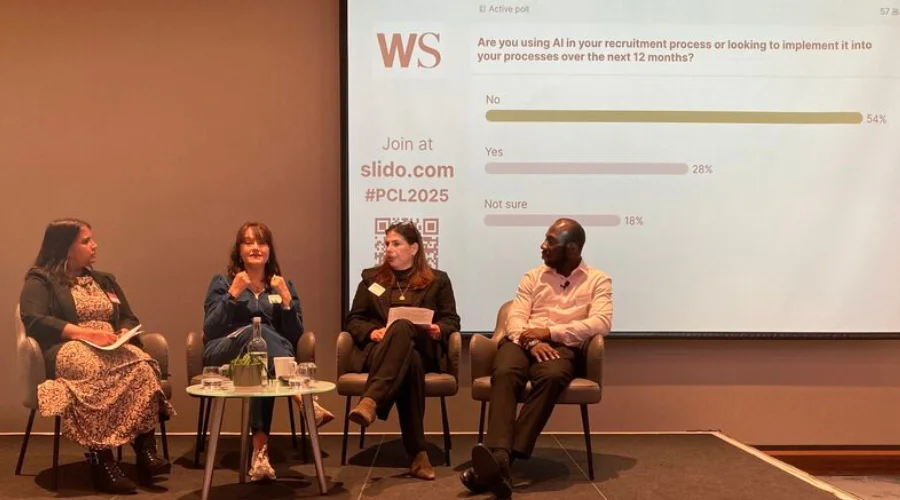
Quick CV Dropoff
Want to hear about the latest non-profit and public sector opportunities as soon as they become available? Upload your CV below and a member of our team will be in touch.

At our recent Candidate Career Workshop, Hannah Strauss and Tracey George covered the topic of applying for a role and writing a powerful application. We were delighted by the positive feedback and all the engagement throughout the session. Due to the time allocated for the webinar, we were not able to answer all the questions on the day, and so we decided to share our thoughts with you in response to these excellent and important questions in this Q&A blog.
Yes, definitely. We encourage you to share information about career breaks on your CV. Very often, these breaks are legitimate reasons for not working at that given time of your life, and we believe many valuable transferable skills and lived experiences come from career breaks for reasons such as starting a family, travelling, volunteering, or caring for a relative, to name just a few. LinkedIn has also recently included a new feature that allows people to represent a career break within their LinkedIn profile, with 13 options.
This usually indicates that the employer may have concerns around why you are applying for a role that they deem to be more junior than the applicant's experience suggests. These concerns could be around your genuine interest in the role or how long you will stay engaged and productive doing the work. They may also have concerns that the role will not be challenging enough and therefore lack development potential.
Our advice to help overcome this would be to be very clear in communicating why you are interested in the role and cover off any concerns by clarifying the reasons for your interest in your cover letter or supporting statement. You might mention points such as changing sectors or having other commitments that mean you will be very happy with a role at a particular level. It is more common these days that the role or organization has many other attractive qualities that appeal to you, as well as a genuine willingness and desire to do the role.
Another helpful approach is to always ensure you tailor your CV according to the role you are applying for, to highlight your most relevant skills and experience.
A disability is defined in the Equality Act as a physical or mental condition which has a substantial and long-term impact on your ability to do normal day-to-day activities.
We would advise anyone who is unsure about whether they have a disability or not to discuss this with your GP or access other support services for specialist and tailored advice. For example, Access to Work or Evenbreak Career Hive. It is important that as a job seeker, you are aware of the resources and support available to you when searching for a job.
At TPP, we encourage job seekers to share information about any support and adjustments that would help with the application process, and if needed, to share this with prospective employers so that they can do the same. It is our experience that organizations are usually open to making adjustments, and we believe it will allow you the opportunity to present yourself and your valuable experience in the best possible way.
In this blog, we share information about what reasonable adjustments are and how you can go about asking for these.
This is disappointing; however, some organizations do unfortunately have very rigid application processes. We encourage organizations to offer alternative application methods and would always explore this with hiring organizations on behalf of a job seeker who requested this.
If you do have a disability or long-term health condition under the Equality Act, organizations are obliged to consider making reasonable adjustments to the process, and you should definitely explore this with them.
Inflexible organizations will miss out on attracting the best and most diverse talent, and an inflexible recruitment process might give some insight into the working environment and overall culture of that organization.
The most important point to consider here is how relevant your previous roles are for the role you are applying for. We would always suggest that if the experience you gained in a previous role is relevant to the role you are applying for, you should include it. We suggest keeping your CV to 2–3 pages, and usually more detail is included in your most recent roles.
It is worth noting that for certain roles in particular sectors or settings, for example, social care or clinical, you may be required to outline your full work history in your CV.
Yes, do ask the recruiter or hiring contact for salary information. We believe this is critical information for any job seeker to have to ascertain whether the role is suitable and one that is worth applying for.
TPP has signed up to the Show the Salary campaign, which means that all roles advertised by us will indicate a salary or salary banding.
This is a great question and really demonstrates the value of transferable skills and experience. In this example, it would be worth considering whether blogging experience is relevant to the role or any aspect of it. For example, it may be a great way of expanding on your ability to do a role where writing blogs or content creation forms part of the role you are applying for.
We encourage including information about volunteering you do, as this demonstrates a good work ethic, commitment, and interest in sharing your knowledge and experience for a good cause. Organizations in the non-profit sector are generally very interested in both paid and voluntary experience that job seekers have gained.
For more career advice, please visit our Employability Support Hub or get in touch with us on 020 7198 6000.